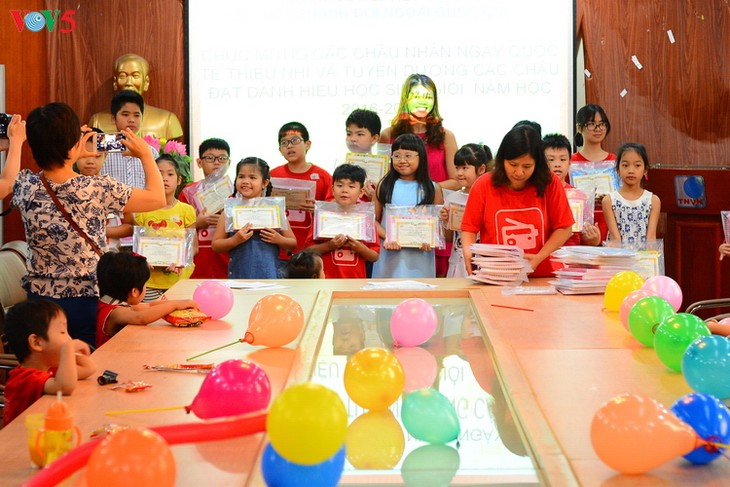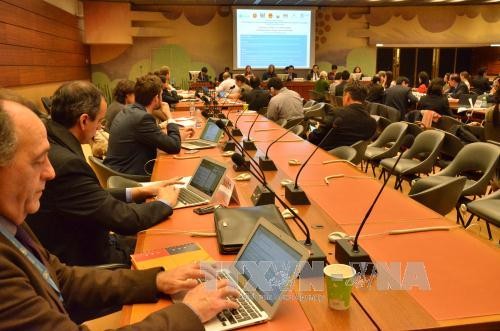(VOVWORLD) -The Law on Children and a series of child-related policies, which have begun to take effect this year, aim to improve children’s lives and better protect their rights.
 Children receive gifts on Children's Day June 1 (Photo: Duc Anh/VOV5) Children receive gifts on Children's Day June 1 (Photo: Duc Anh/VOV5) |
The Law on Children came into force on June 1, creating a legal framework for child care, protection, and education and regulating Vietnam’s implementation of the UN Convention on the Rights of the Child. According to the new law, children’s opinions should be reflected in child-related policies, and national and local socio-economic plans should incorporate targets concerning child development. The law also stipulates children’s rights to survival, development, protection, and participation to harmonize the UN Convention with Vietnam’s specific conditions. The 2016 Law on Children regulates that the Ho Chi Minh Communist Youth Union represents children’s voices and aspirations and monitors the implementation of the rights of the child. This is a new, progressive mechanism, which shows the State and society’s respect for children’s opinions. Deputy Minister of Labor, Invalids, and Social Affairs Dao Hong Lan said: “The Law on Children was written on the basis of the rights of children and children with disadvantages. It clarifies the Constitution’s regulations on executing human rights and children’s rights and refers to the International Convention on the Rights of the Child, to which Vietnam is a signatory.”

Vietnam hosted a discussion entitled “Child education on climate change” on March 2, 2017, on the sidelines of the 34th session of UN Human Rights Council in Geneva, Switzerland (Photo: VNA)
|
In June, the government decided to establish a National Committee for the Rights of the Child to boost coordination between sectors and localities in resolving child-related issues and promote enforcement of the UN Convention. The Committee is led by a Deputy Prime Minister and comprises 3 vice chairs: the Minister of Labor, Invalids, and Social Affairs, the Minister of Education and Training, and the Minister of Health. The Minister of Labor, Invalids, and Social Affairs (MOLISA) Dao Ngoc Dung said: “It’s essential to fine-tune the child-related legal framework and policies. The National Committee for the Rights of the Child is inter-sectoral. It’s in charge of giving child-related advises to government and leading child empowerment efforts. Our Ministry is considering adopting a Law on Social Work as part of Vietnam’s strengthened social welfare for children.”
Promoting children’s participation rights
Child-centered models have been operating in localities. Last month, the Central Committee of the Young Pioneers Organization began piloting a “Child Council” model at the municipal and provincial level until 2020. The Council was first launched in Ho Chi Minh on June 22 and will be set up in Hanoi, Binh Dinh, Quang Ninh, and Yen Bai to provide a platform for young citizens to exchange views and give recommendations to leaders.
Vietnam is also implementing the UNICEF-initiated “Child friendly city” project. UNICEF Chief Representative in Viet Nam Youssouf Abdel-Jelil said: “Around the world from developing countries and middle income countries to developed countries such as New Zealand, France, and Italy, “Child friendly city” project has been implemented. We have started the initiative in Ho Chi Minh City with the help of MOLISA. The initiative is important for children in Vietnam in general. The cooperation and partnership with MOLISA is important in what we do in Ho Chi Minh City. We will also include Da Nang and other cities.”